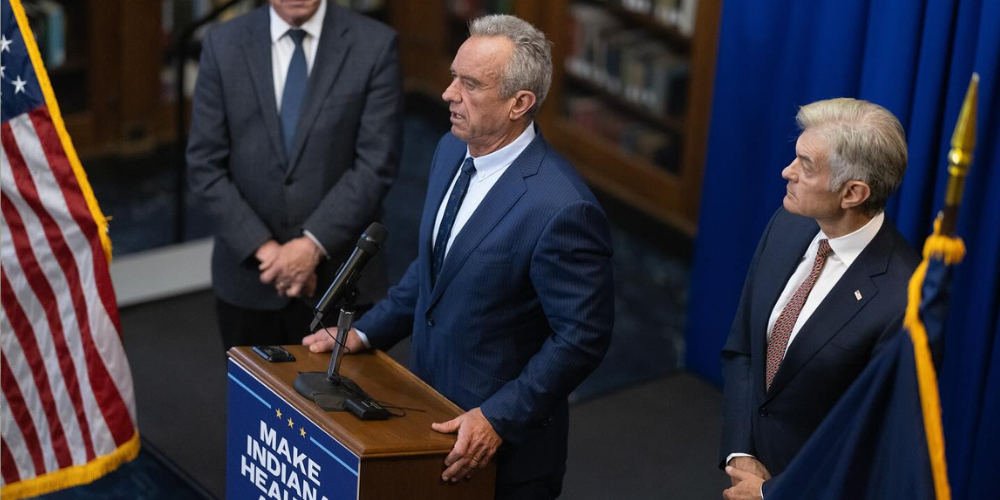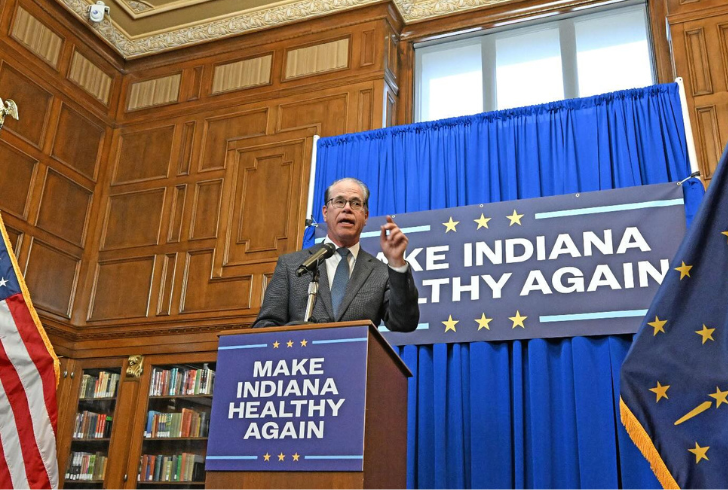
Four States Push for Healthier Food Choices in SNAP Benefits Program

Efforts to improve the quality of nutrition provided through food assistance are picking up pace across the U.S. A group of governors is taking a bold step toward shaping how food stamp benefits are used by proposing new limits on unhealthy purchases.
The goal is simple: redirect government support toward healthier eating habits by restricting items like candy and sugary drinks from being covered under the Supplemental Nutrition Assistance Program (SNAP).
States Take Action to Improve Nutrition
Governors from Arkansas, Idaho, Indiana, and West Virginia want to change how SNAP works in their states. They plan to submit waivers to the U.S. Department of Agriculture (USDA), which runs the program. These waivers would block candy and soda from being bought with SNAP benefits.
Indiana’s governor explained that states should act now instead of waiting for national solutions. “We’re tackling health issues like unhealthy eating at the local level,” he said.
Arkansas’s governor backed the move, speaking alongside USDA Secretary Brooke Rollins, who supported the proposal.

Instagram | governorbraun | According to Indiana’s governor, states shouldn’t wait for federal health fixes; they should act now.
Why Ban Sugary and Processed Foods?
These leaders are concerned about how much sugar people are eating. The USDA recommends keeping added sugar below 10% of daily calories. That’s around 12 teaspoons per day for someone eating 2,000 calories. But in 2018, U.S. kids were averaging 17 teaspoons a day, according to the CDC.
Sugary snacks and drinks are linked to obesity, diabetes, and heart problems. These health issues often last a lifetime and cost taxpayers billions. By removing these foods from SNAP, states hope to guide families toward healthier choices.
What SNAP Covers and What Might Change
SNAP currently allows purchases like:
– Fruits and vegetables
– Meat, poultry, and fish
– Dairy items
– Bread and cereals
– Snacks and non-alcoholic drinks
– Seeds and plants for home gardening
It already bans alcohol and tobacco. If the waivers go through, soda and candy would also be excluded.
Some people argue that it’s hard to define candy. To fix this, states are writing clear rules. For example, Idaho defines candy as anything sweetened with sugar and mixed with chocolate, fruit, or nuts, usually in bars or drops. Items with more than 10% flour or those needing refrigeration wouldn’t count as candy.
Health Experts Support the Move

now.tufts.edu | Mozaffarian applauded SNAP’s potential to nourish families better, boost health, and lower expenses.
Many experts think this change will help. A public health professor at NYU said, “If people must pay for junk food themselves, they’ll likely buy less of it.”
Still, some worry about the gray areas. It’s not always easy to separate snack foods from everyday groceries. But many agree that this is a good step toward improving how food stamps are used.
Dariush Mozaffarian, head of the Food Is Medicine Institute, praised the effort. “This could help SNAP do more—feed families, support good nutrition, and reduce long-term health costs,” he said.
A Call for More States to Join
Federal health leaders are urging other governors to act now. At a recent event, one official said, “States that want to improve nutrition through smarter food rules will have our full support.”
West Virginia is already moving forward. The governor there was one of the first to act. Now, other states are following that lead. These actions send a strong message: food benefits should help people stay healthy.
What This Could Mean for the Future
If these waivers are approved, millions of Americans may soon have new rules when shopping with SNAP. The changes won’t cut benefits but will guide families to make healthier choices.
The idea isn’t new. But this joint push from multiple states adds momentum. By focusing SNAP spending on nutritious foods, leaders hope to improve health without spending more money.
This may be the start of a bigger shift. As more states speak up, food and health policies could change quickly, making healthier living more possible for everyone.
More inMedicare
-
`
Are Popular Diet Trends Actually Good for Your Heart?
Diet trends grab headlines every year, promising everything from glowing skin to dramatic weight loss. But when it comes to the...
July 30, 2025 -
`
Why Are Men Taller Than Women? New Genetic Study Finds Clue
For centuries, the average height difference between men and women has been noticeable—men generally stand about five inches taller. While environment...
July 23, 2025 -
`
How Upcycled Beauty Ingredients Are Reshaping the Industry’s Future
The beauty industry is going through a big shift — and it’s not just about trends. As waste problems grow and...
July 17, 2025 -
`
A Look Inside Faith Kipyegon’s Groundbreaking Mile Run in Paris
Last week in Paris, Faith Kipyegon returned to a place she knows well: Stade Sébastien Charléty. But this time, she wasn’t...
July 9, 2025 -
`
Dairy Is Making a Major Comeback — And Health Shoppers Are Loving It
Just a few years ago, dairy sat quietly in the back seat while plant-based alternatives took the spotlight. Now, it’s stepping...
July 4, 2025 -
`
Does Aging Cause Dental Problems?
Aging doesn’t automatically mean losing teeth or developing gum disease. In fact, older adults today are holding onto more of their...
June 25, 2025 -
`
How Upcycled Ingredients Are Shaping the Future of Cosmetics
What used to end up in bins or compost heaps is now finding a new life inside skincare bottles and beauty...
June 18, 2025 -
`
Rock Legend Rod Stewart Trains to Break Sprint Record at 80
Age isn’t slowing Rod Stewart down. Known worldwide for his legendary voice, stadium-filling tours, and timeless hits like “Maggie May”, the...
June 11, 2025 -
`
The Truth Behind Detox Diets – Health Boost or Risky Trend?
It’s hard to scroll through your feed without seeing someone sipping green juice with promises of instant energy, glowing skin, and...
June 3, 2025














You must be logged in to post a comment Login